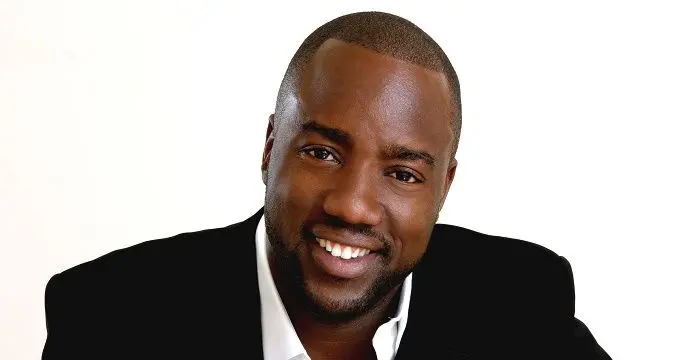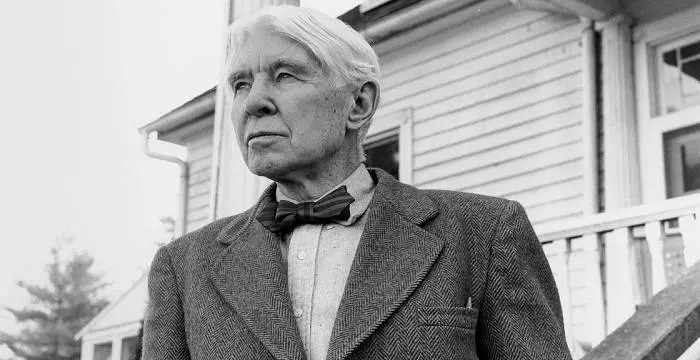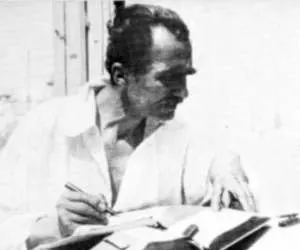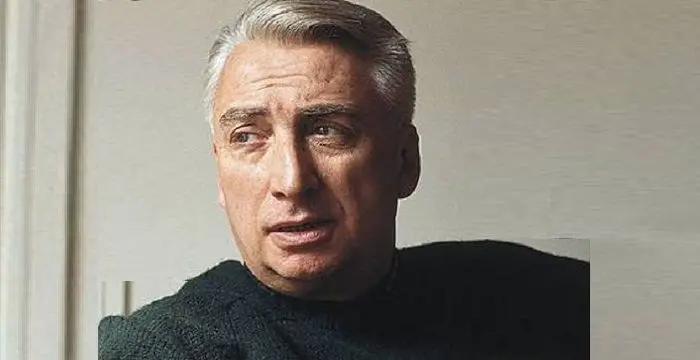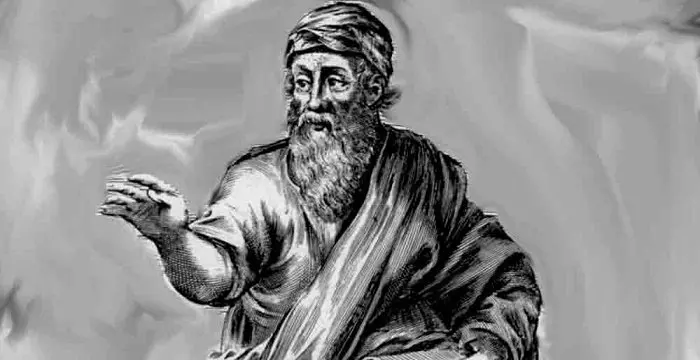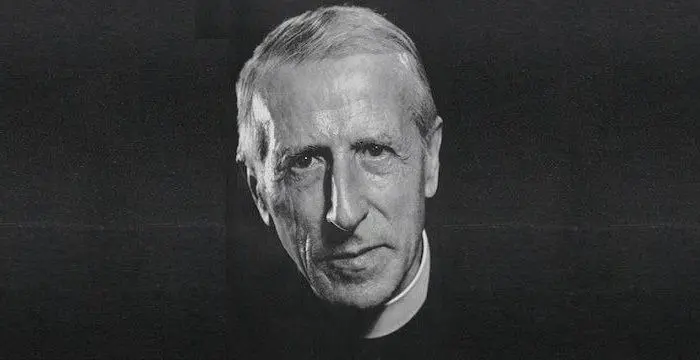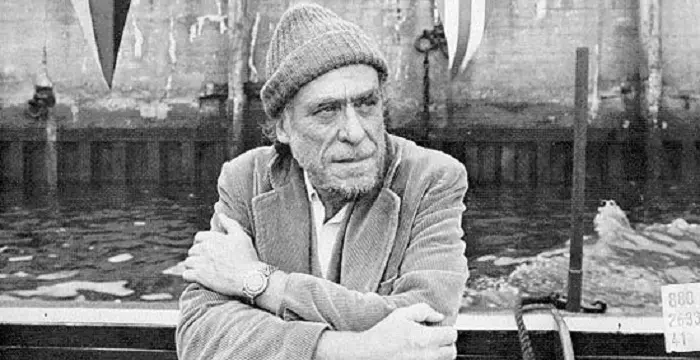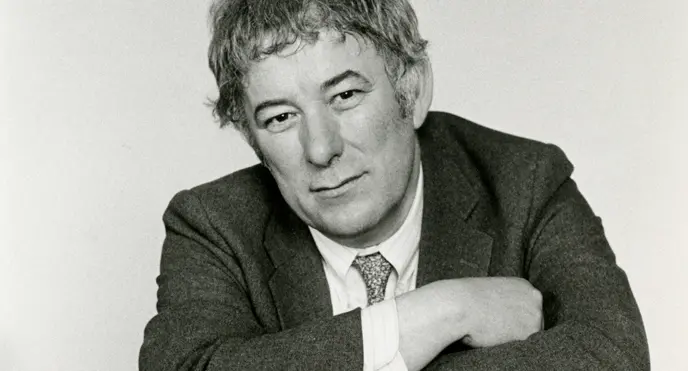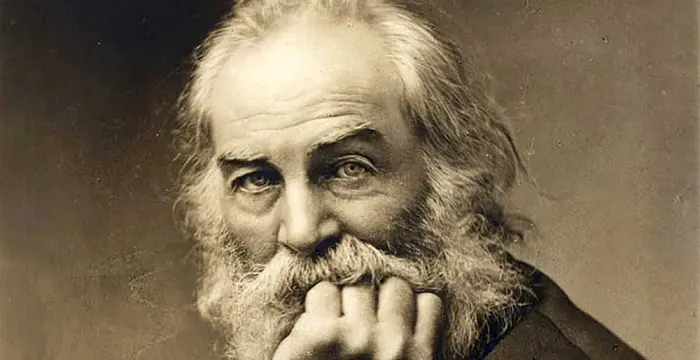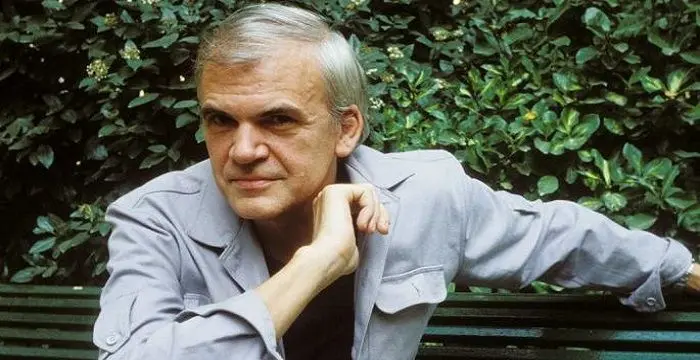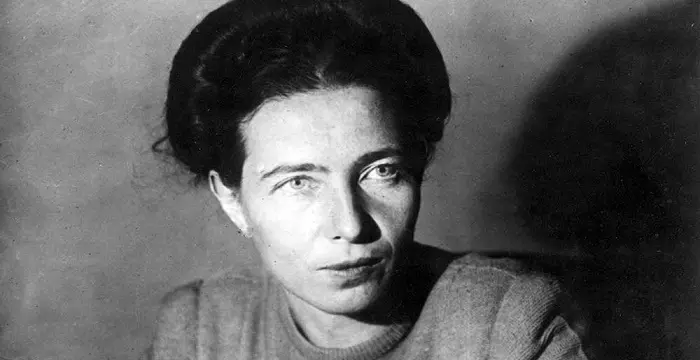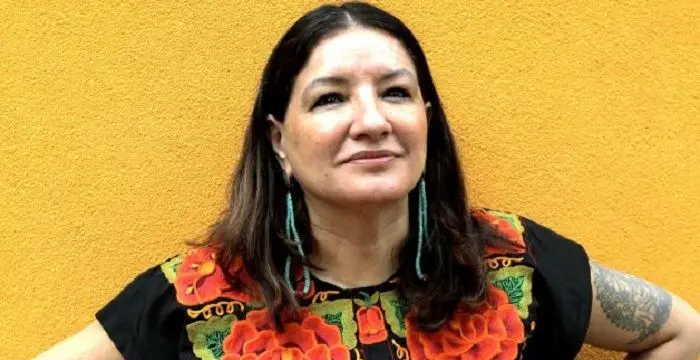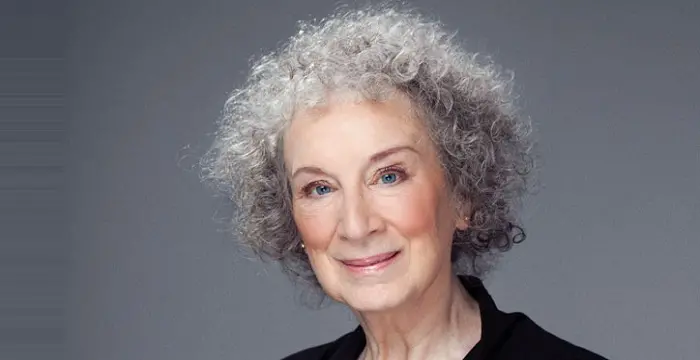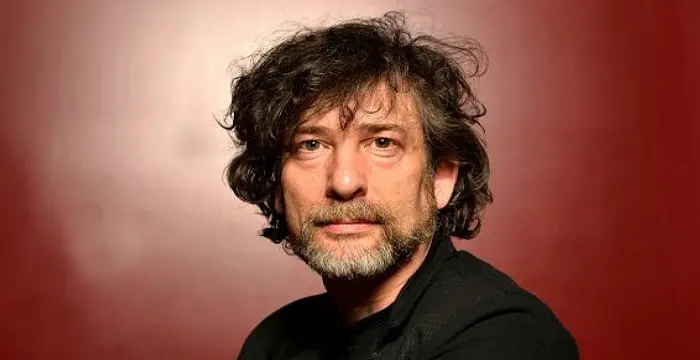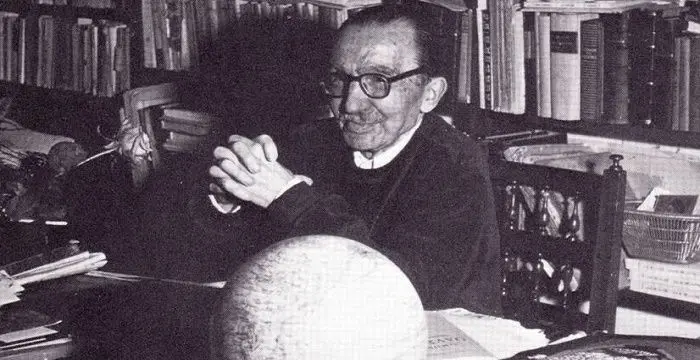
Nikos Kazantzakis - Philosophers, Timeline and Facts
Nikos Kazantzakis's Personal Details
Nikos Kazantzakis was a Greek philosopher and writer
| Information | Detail |
|---|---|
| Birthday | February 18, 1883 |
| Died on | October 25, 1957 |
| Nationality | Greek |
| Famous | Intellectuals & Academics, Philosophers, Poets, Novelists, Essayists, Philosophers, Writers |
| Spouses | Eleni Samiou (m. 1945), Galatea Alexiou (1911–1926; divorced) |
| Universities |
|
| Birth Place | Heraklion |
| Religion | Eastern Orthodox |
| Gender | Male |
| Father | Michael Kazantzakis |
| Mother | Maria Kazantzakis |
| Sun Sign | Aquarius |
| Born in | Heraklion |
| Famous as | Philosopher and Writer |
| Died at Age | 74 |
// Famous Writers
Alan Watts
Alan Watts was a famous British philosopher known for his Zen teachings and interpretations of Eastern philosophy. Read more about this great philosopher in the following article.
Malik Yoba
Malik Yoba is an American actor, writer, and singer who made his film debut in 1993 with ‘Cool Runnings.’ Check out this biography to know about his childhood, family life, achievements and fun facts about him.
Carl Sandburg
Carl Sandburg was a famous multiple Pulitzer Prize winner writer and poet. Read more about the life and the works of this prolific writer in the following article.
Nikos Kazantzakis's photo
Who is Nikos Kazantzakis?
Nikos Kazantzakis, a Greek philosopher and writer, lived in the late 19th and early 20th century. He is most famous for his novel, ‘Zorba the Greek’, with his worldwide fame largely tied to the novel’s interpretation as a critically and popularly acclaimed film in the 1960s. In addition to his magnus opus, Kazantzakis’ accomplishments include other novels, travel books, plays, memoirs, essays and other literary and philosophical works. Besides writing, Kazantzakis was also involved in political causes throughout much of his life. He briefly held political office, though he is primarily remembered for his contributions to the fields of literature and philosophy. His philosophical writings, though less popularly read than his novels, are considered by many Kazantzakis enthusiasts to have been the most notable of his accomplishments. For his role as a man of letters as well as his involvement in the world of philosophy and politics, he has received numerous awards and commendations. Today, numerous exhibitions, symposia and other events are regularly organized to commemorate his life and his work. A permanent museum on the island of Crete is entirely dedicated to Kazantzakis and features his desk, library and some of his manuscripts, as well as various personal effects.
// Famous Philosophers
Roland Barthes
Roland Barthes was a French literary theorist, critic and semiotician. This biography profiles his childhood, life, works, achievements and timeline.
Pythagoras
Pythagoras of Samos was a Greek mathematician and philosopher. Read on to learn more about Pythagoras’s profile, childhood, life and timeline.
Pierre Teilhard de Chardin
Pierre Teilhard de Chardin was a famous French philosopher and a priest who was also known for his controversial writings. Read more about the life and works of this philosopher in the following article.
Childhood & Early Life
Nikos Kazantzakis was born on 18 February 1883, Heraklion, Crete, to Michael Kazantzakis, a farmer and animal feed dealer, and Maria Kazantzakis. He was the first-born of four children. His other siblings were Anastasia, Eleni and Yiorgos; Yiorgos died in infancy.
In 1902, Kazantzakis left Crete to study law at the University of Athens, a degree which he would complete in four years.
Career
In 1906, Kazantzakis published his first book, ‘Ophis kai krino’, and had his first play, ‘Xemeronei’, staged.
In 1907, having completed his law degree, Kazantzakis moved to Paris to study philosophy, finding great inspiration in the work of Henri Bergson.
In 1909, Kazantzakis completed his philosophy degree with a dissertation on Nietzsche titled, ‘Friedrich Nietzsche on the Philosophy of Right and the State.’ Upon completing his degree, he returned to Greece.
Beginning in 1910 and continuing into the 1930s, Kazantzakis traveled extensively, spending time in China, Japan, Russia, England and Spain. During this period and later in life, he would also spend significant time in Cypus, Egypt, Mount Sinai, Czechoslovakia, Berlin and Nice, France.
In 1919, Kazantzakis was appointed as the director general of the Greek Ministry of Public Welfare, a post he held for only one year before resigning. During his service, he helped feed and rescue over 150,000 Greek-born war victims.
Between 1925 and 1938, Kazantzakis worked on an epic poem, ‘Odyssey: A Modern Sequel’, based on Ulysses’s story and beginning where the original story ends. Over this period, he rewrote the work seven times.
From 1941 to 1943, Kazantzakis worked on the novel ‘Zorba the Greek’, the story of a young Greek intellectual who meets a mysterious man called Alexis Zorba. The novel would eventually be turned into a blockbuster film as well as a Broadway musical.
In 1945, Kazantzakis led a small leftist (though not communist) party in Greece and represented the party in the capacity of a Minister without Portfolio.
In 1946, The Society of Greek Writers nominated Kazantzakis for the Nobel Prize for Literature, along with Angelos Sikelianos. Kazantzakis lost to Albert Camus by one vote, a defeat which Camus himself described as unfair, claiming that Kazantzakis deserved the honor instead.
Major Works
In 1927, Kazantzakis completed ‘Askitki’, which today is widely considered to have been his greatest work of philosophy, drawing on elements from Bergson, Marx and Nietzsche, as well as Christianity and Buddhism.
In 1938, the epic poem ‘Odisseas’ was published, though its English-language translation, ‘The Odyssey: A Modern Sequel’, was not published until twenty years later, following Kazantzakis’ death.
In 1946, Kazantzakis published ‘Zorba the Greek’, though it was not translated into English until six years later. The novel would eventually be adapted as a film, a ballet and a musical, all after Kazantzakis’ death.
Awards & Achievements
In 1946, Kazantzakis was recommended for the Nobel Prize for Literature by the Society of Greek Writers and nearly won the award, but for one vote. Albert Camus, the award recipient, expressed the opinion that Kazantzakis deserved to have won.
In 1956, Kazantzakis received the International Peace Award, an honor which was bestowed on him in Vienna, Austria.
In 2007, on the 50th anniversary of Kazantzakis’ death, a commemorative 10 Euro collectors’ coin was minted with his image on one face. On the other face of the coin is the Emblem of Greece.
Personal Life & Legacy
Nikos Kazantzakis married Galatea Alexiou in 1911. The couple stayed together for 15 years before they ultimately divorced.
In 1945, Kazantzakis remarried, this time to Eleni Samiou, a young Athenian woman with whom Kazantzakis had had a long-running affair and with whom he had traveled extensively during his prior marriage. Eleni Kazantzakis would later help her husband to painstakingly rewrite and edit manuscripts. After his death, she would write his biography.
He died on 26 October 1957, in Freiburg, Germany, due to leukemia. His body was taken to Iraklion for burial within the city wall of Heraklion, close to the Chania Gate.
The Society of Friends of Nikos Kazantzakis was established following his death to continue exploring the ideas forwarded through his works. It features members in more than 13 countries.
The international airport of Heraklion, Kazantzakis’ birthplace, has been renamed in Kazantzakis’ memory as Nikos Kazantzakis Airport.
Trivia
In addition to Greek, Kazantzakis spoke French and Italian, which he learned in order to familiarize himself with a broader swathe of Western culture.
// Famous Poets
Charles Bukowski
Charles Bukowski was a German-born American novelist, short story writer and poet. With this biography, learn in details about his childhood, life, works, career and timeline
Seamus Heaney
Nobel Laureate Seamus Heaney was an Irish poet, playwright and translator. Know about his profile, childhood, life and timeline in the biography below.
Walt Whitman
Walt Whitman was an American poet, journalist and humanist. Read this brief biography to find more on his life & timeline.
Nikos Kazantzakis biography timelines
- // 18th Feb 1883Nikos Kazantzakis was born on 18 February 1883, Heraklion, Crete, to Michael Kazantzakis, a farmer and animal feed dealer, and Maria Kazantzakis. He was the first-born of four children. His other siblings were Anastasia, Eleni and Yiorgos; Yiorgos died in infancy.
- // 1902In 1902, Kazantzakis left Crete to study law at the University of Athens, a degree which he would complete in four years.
- // 1906In 1906, Kazantzakis published his first book, ‘Ophis kai krino’, and had his first play, ‘Xemeronei’, staged.
- // 1907In 1907, having completed his law degree, Kazantzakis moved to Paris to study philosophy, finding great inspiration in the work of Henri Bergson.
- // 1909In 1909, Kazantzakis completed his philosophy degree with a dissertation on Nietzsche titled, ‘Friedrich Nietzsche on the Philosophy of Right and the State.’ Upon completing his degree, he returned to Greece.
- // 1910Beginning in 1910 and continuing into the 1930s, Kazantzakis traveled extensively, spending time in China, Japan, Russia, England and Spain. During this period and later in life, he would also spend significant time in Cypus, Egypt, Mount Sinai, Czechoslovakia, Berlin and Nice, France.
- // 1911Nikos Kazantzakis married Galatea Alexiou in 1911. The couple stayed together for 15 years before they ultimately divorced.
- // 1919In 1919, Kazantzakis was appointed as the director general of the Greek Ministry of Public Welfare, a post he held for only one year before resigning. During his service, he helped feed and rescue over 150,000 Greek-born war victims.
- // 1925 To 1938Between 1925 and 1938, Kazantzakis worked on an epic poem, ‘Odyssey: A Modern Sequel’, based on Ulysses’s story and beginning where the original story ends. Over this period, he rewrote the work seven times.
- // 1927In 1927, Kazantzakis completed ‘Askitki’, which today is widely considered to have been his greatest work of philosophy, drawing on elements from Bergson, Marx and Nietzsche, as well as Christianity and Buddhism.
- // 1938In 1938, the epic poem ‘Odisseas’ was published, though its English-language translation, ‘The Odyssey: A Modern Sequel’, was not published until twenty years later, following Kazantzakis’ death.
- // 1941 To 1943From 1941 to 1943, Kazantzakis worked on the novel ‘Zorba the Greek’, the story of a young Greek intellectual who meets a mysterious man called Alexis Zorba. The novel would eventually be turned into a blockbuster film as well as a Broadway musical.
- // 1945In 1945, Kazantzakis led a small leftist (though not communist) party in Greece and represented the party in the capacity of a Minister without Portfolio.
- // 1945In 1945, Kazantzakis remarried, this time to Eleni Samiou, a young Athenian woman with whom Kazantzakis had had a long-running affair and with whom he had traveled extensively during his prior marriage. Eleni Kazantzakis would later help her husband to painstakingly rewrite and edit manuscripts. After his death, she would write his biography.
- // 1946In 1946, The Society of Greek Writers nominated Kazantzakis for the Nobel Prize for Literature, along with Angelos Sikelianos. Kazantzakis lost to Albert Camus by one vote, a defeat which Camus himself described as unfair, claiming that Kazantzakis deserved the honor instead.
- // 1946In 1946, Kazantzakis published ‘Zorba the Greek’, though it was not translated into English until six years later. The novel would eventually be adapted as a film, a ballet and a musical, all after Kazantzakis’ death.
- // 1946In 1946, Kazantzakis was recommended for the Nobel Prize for Literature by the Society of Greek Writers and nearly won the award, but for one vote. Albert Camus, the award recipient, expressed the opinion that Kazantzakis deserved to have won.
- // 1956In 1956, Kazantzakis received the International Peace Award, an honor which was bestowed on him in Vienna, Austria.
- // 26th Oct 1957He died on 26 October 1957, in Freiburg, Germany, due to leukemia. His body was taken to Iraklion for burial within the city wall of Heraklion, close to the Chania Gate.
- // 2007In 2007, on the 50th anniversary of Kazantzakis’ death, a commemorative 10 Euro collectors’ coin was minted with his image on one face. On the other face of the coin is the Emblem of Greece.
// Famous Novelists
Charles Bukowski
Charles Bukowski was a German-born American novelist, short story writer and poet. With this biography, learn in details about his childhood, life, works, career and timeline
Milan Kundera
Milan Kundera is a Czech-born French writer known for his erotic and political writings. This biography of Milan Kundera provides detailed information about his childhood, life, achievements, works & timeline.
Simone de Beauvoir
Simone de Beauvoir was an eminent French writer, intellectual, activist, and philosopher. This biography profiles her childhood, life, thoughts, achievements and timeline.
Sandra Cisneros
Sandra Cisneros is an American writer known for audaciously penning the realities and expectations from females in US and Mexico. This biography provides detailed information about her childhood, life, achievements, works & timeline
Margaret Atwood
Margaret Atwood is a Canadian writer, best known for her novels, short stories and poems. This biography of Margaret Atwood provides detailed information about her childhood, life, achievements, works & timeline.
Neil Gaiman
Neil Gaiman is an English writer of novels, short stories, children’s books and other literature. This biography provides detailed information about his childhood, life, achievements, works & timeline.
Nikos Kazantzakis's FAQ
What is Nikos Kazantzakis birthday?
Nikos Kazantzakis was born at 1883-02-18
When was Nikos Kazantzakis died?
Nikos Kazantzakis was died at 1957-10-25
Where was Nikos Kazantzakis died?
Nikos Kazantzakis was died in Freiburg im Breisgau
Which age was Nikos Kazantzakis died?
Nikos Kazantzakis was died at age 74
Where is Nikos Kazantzakis's birth place?
Nikos Kazantzakis was born in Heraklion
What is Nikos Kazantzakis nationalities?
Nikos Kazantzakis's nationalities is Greek
Who is Nikos Kazantzakis spouses?
Nikos Kazantzakis's spouses is Eleni Samiou (m. 1945), Galatea Alexiou (1911–1926; divorced)
What was Nikos Kazantzakis universities?
Nikos Kazantzakis studied at National and Kapodistrian University of Athens
What is Nikos Kazantzakis's religion?
Nikos Kazantzakis's religion is Eastern Orthodox
Who is Nikos Kazantzakis's father?
Nikos Kazantzakis's father is Michael Kazantzakis
Who is Nikos Kazantzakis's mother?
Nikos Kazantzakis's mother is Maria Kazantzakis
What is Nikos Kazantzakis's sun sign?
Nikos Kazantzakis is Aquarius
How famous is Nikos Kazantzakis?
Nikos Kazantzakis is famouse as Philosopher and Writer

